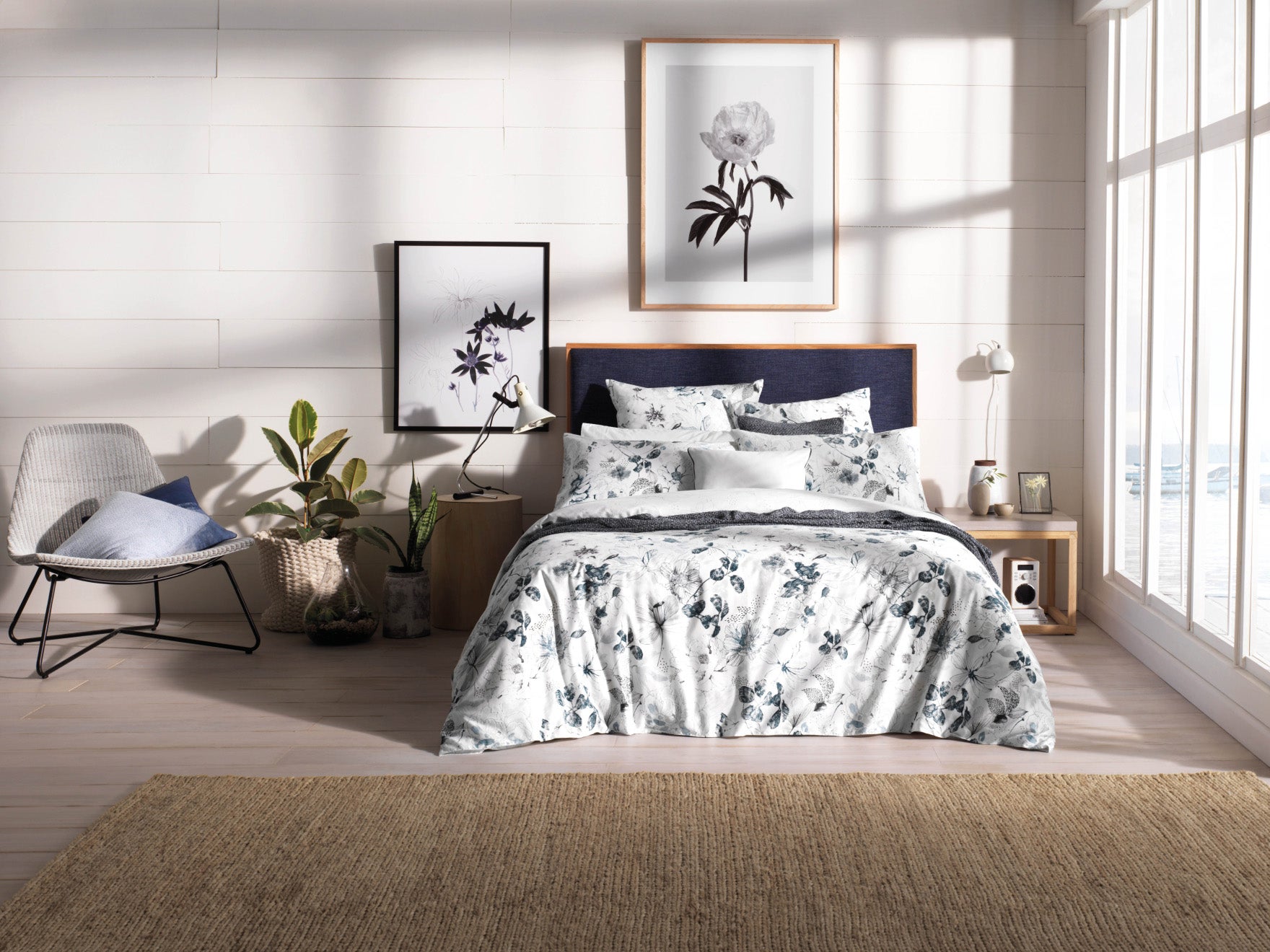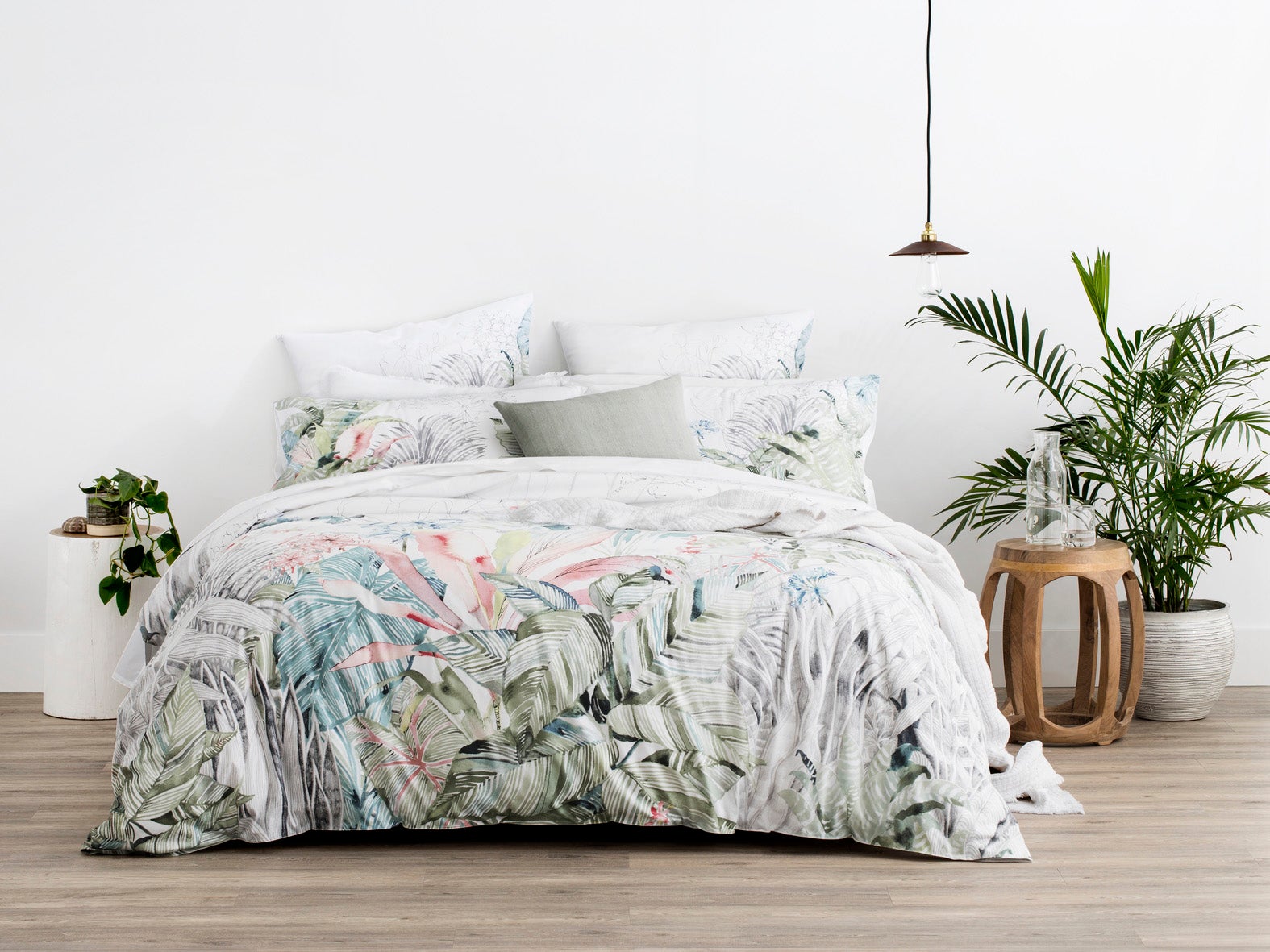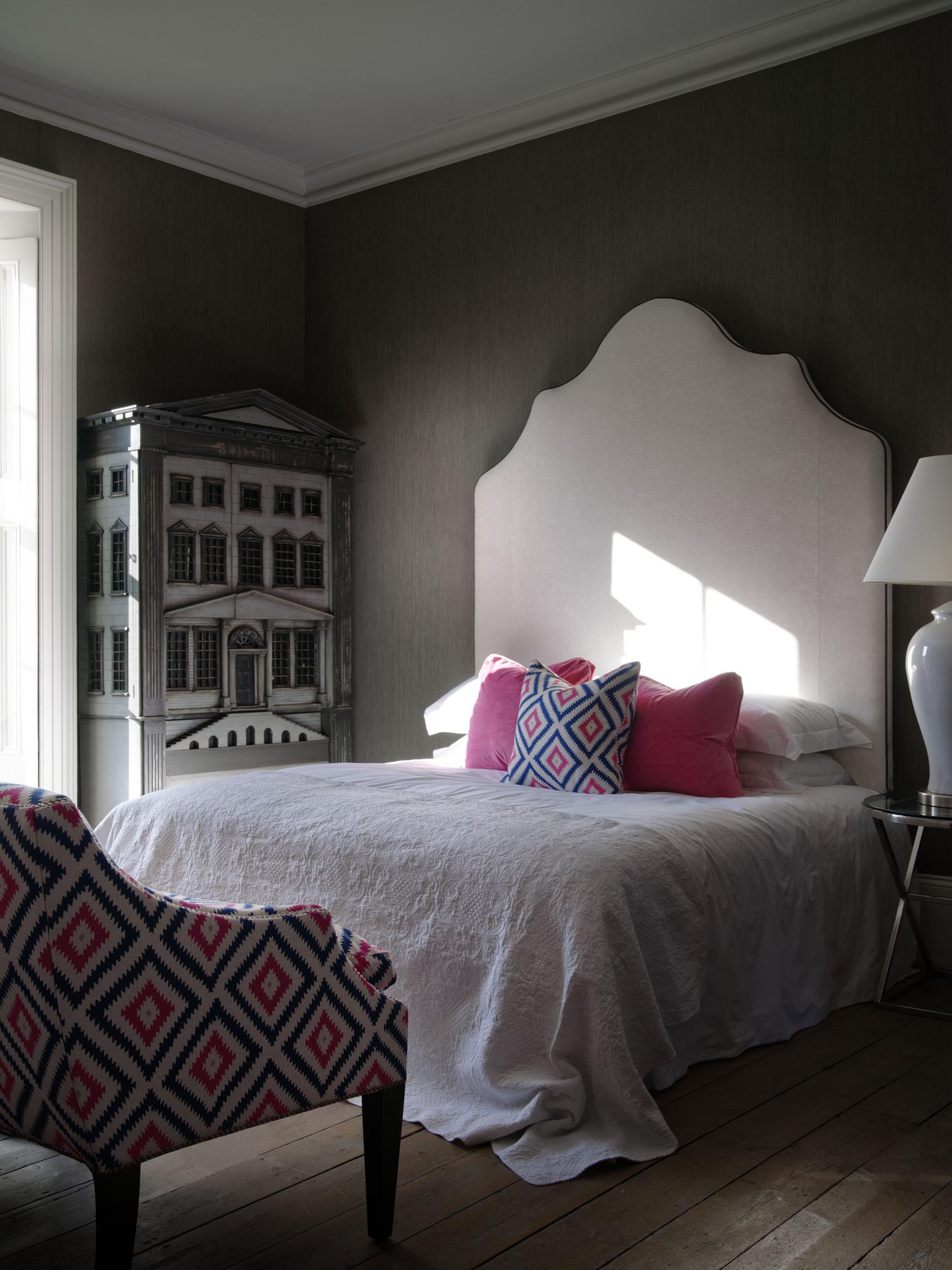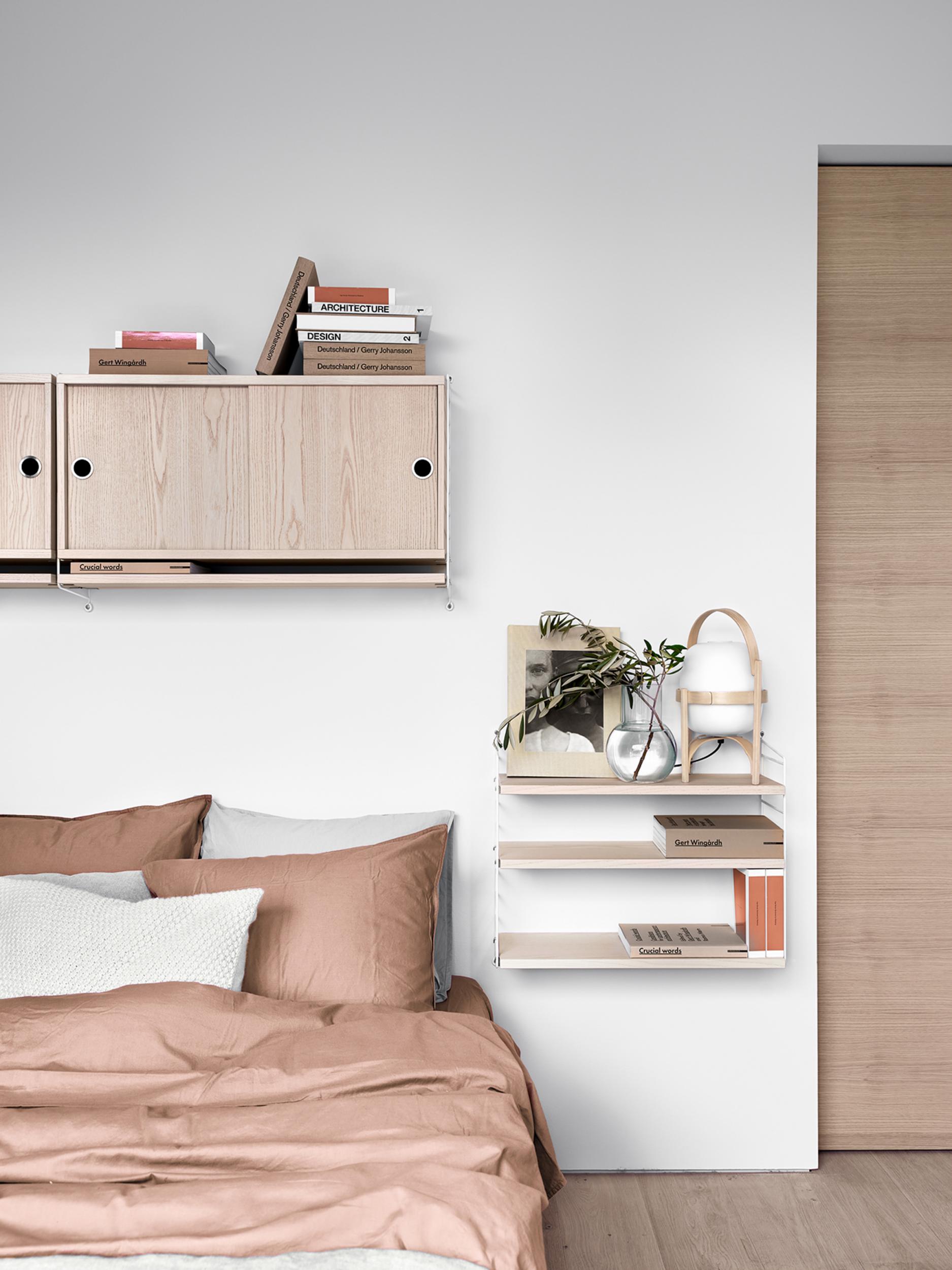How to cosy up your bedroom for the winter
Three interior design experts give us the rundown on the best ways to build the perfect nest in which to hibernate from the coming chill

Your support helps us to tell the story
From reproductive rights to climate change to Big Tech, The Independent is on the ground when the story is developing. Whether it's investigating the financials of Elon Musk's pro-Trump PAC or producing our latest documentary, 'The A Word', which shines a light on the American women fighting for reproductive rights, we know how important it is to parse out the facts from the messaging.
At such a critical moment in US history, we need reporters on the ground. Your donation allows us to keep sending journalists to speak to both sides of the story.
The Independent is trusted by Americans across the entire political spectrum. And unlike many other quality news outlets, we choose not to lock Americans out of our reporting and analysis with paywalls. We believe quality journalism should be available to everyone, paid for by those who can afford it.
Your support makes all the difference.I have been advised against starting this article with a reference to Game of Thrones for want of avoiding cliché, but I don’t watch it and frankly am frightened by the level of commitment required to surmount the unending stream of episodes. So here we go: Winter is coming. The nights are drawing in slowly but surely, and finally we have an excuse to stay in.
Today, I speak to three top stylists on the best ways to style your bedroom to make the most of quiet evenings at home. Just add comfort food and (maybe, just maybe) that TV series you’ve been meaning to watch all summer, but haven’t found the time.
Jason Grant
Jason Grant is an interior stylist for Sheridan Australia and author of a number of interiors books showcasing the Australian aesthetic. Grant tells me that “Australian style is laid back and casual, with a touch of luxe.” He explained that this is why he loves working with Sheridan, adding that bedroom styling should “incorporate nature”, something that the brand has always done via its botanical designs, created by in-house artists. “I love that the designers at Sheridan immerse themselves in the process of creating the artwork – even the bedding – from inspiration to the final product. Each finished piece tells a story about nature and style.”
When I asked Grant for his top bedroom styling tips, he started with comfort. “Comfort is key. Your space should feel light and soft. It’s all about adding tactile layers with throws and cushions.” However, there is such a thing as over-styling. He advised that, “in moderation, decorative touches make all the difference, but you shouldn’t get too carried away with decorative cushions. Don’t over-style.” With regards to bedroom colour pallets, Grant believes that “greige” bedrooms should be a thing of the past. “Don’t be afraid to express yourself. Introduce colour and texture into your bedroom with bright botanical bedding.” Grant’s key styling tip for those not yet brave enough to experiment with colour is to limit your palette to 3 shades, giving you a brief to work within and eliminating the anxiety-inducing issue of having too much choice.

Martha Roberts
Next up is Martha Roberts, journalist and author of “Shelfie: Clutter-clearing Ideas for Stylish Shelf Art”. The popularity of open shelving means our belongings are on show more than ever, in living rooms, kitchens and bathrooms. These objects can be arranged to create what Roberts describes as shelf art, and they can differ wildly room to room. When I asked Roberts for her top bedroom styling tips, she gave me her top five bedroom “shelfie” ideas, and I can’t wait to have a go myself.
Firstly, Roberts suggests using oxygenating plants. She says, “Some plants specifically release oxygen at night rather than during the day, making them ideal for bedrooms. Try Christmas cactus (Schlumbergera truncata), Barbados aloe (Aloe vera), orchids (Dendrobium) and Barberton daisy (Gerbera jamesonii). They will also help to give softness and textural variation to your shelfies.”
According to Roberts, shelfies are not limited to shelves in the traditional sense. “Be imaginative about your shelving choices. As well as using mantelpieces for bedroom shelfies, don’t forget the meeting rail along the middle of a sash window for displaying objects, especially coloured glass such as bud vases or decorative paperweights. For bedside tables, think about using ladder shelves, wall mounted nightstands (for a clean, pared-back look) or even something quirky like a cocktail trolley.”

Acknowledging that we are all guilty of keeping a cluttered bedside table, she has devised a rule: The nightstand power of five. “The surface of a bedside table can be easily overloaded with spare change and random objects. Keep this clutter at bay by limiting what’s on it to five elements. For example, a lamp, books, an alarm clock (or phone docking station, if you must), a small plant or candle and a water tumbler. The simplest way to bring shelfie cohesion is to buy these in the same colour, for example white or copper.”
Roberts believes that shelfies have the power to control the atmosphere of a design scheme. This is where different shelfie rules apply in different rooms. According to Roberts, we should avoid shelfie “noise” in the bedroom. “If you want your bedroom to be a haven, it’s important that you’re not amidst chaos – and that includes shelfies that ‘shout’. They may do this because the shapes are stimulating rather than soothing (such as sharp shapes or objects with faces on) or because of their colour. You may want bright colours on your shelves but put them on a shelf that’s above or next to the bed so that you’re not too stimulated by clocking the colours as you try to drop off to sleep.”
Where objects in the bedroom you would like to style do not lend themselves to flat surfaces, Roberts urges us to try out the “vertical shelfie”: “If you’ve got bags, necklaces and scarves that are too beautiful to hide away, this is where the vertical shelfie comes in. My favourite types are created by hanging them from butchers hooks on a picture rail and adding pictures and decorative letters into the mix, too. Because you’re using the accessories, you’ll find the vertical shelfie tends to change organically in a really pleasing way. This is an ideal solution if you’re a renter who doesn’t have many conventional shelfies or if you’ve got a wall you want to decorate in a unique style.”
David Harris
David Harris is the design director at Andrew Martin. Along with the launch of the new collection of headboards, Andrew Martin can be treated as a one-stop-shop for all of your bedroom styling needs. Once your larger items are in place, Harris suggests updating your bedroom with smaller accessories such as decorative cushions, saying they provide “a simple way to refresh your home and inject personality into a room without having to overhaul your interior scheme”.

Harris believes there is an art to cushion styling. He explains that there are four key rules to bear in mind. Firstly, where your colour palette is concerned, he suggests “opting for complementary hues that match your scheme to create a sense of cohesiveness”. This works particularly well to give your bedroom a relaxing look. However, if a more contemporary aesthetic is what you’re after, Harris recommends choosing cushions with piping in a contrasting shade, “as these little details draw the eye”.
Harris also suggests using cushions as a way to introduce pattern into your bedroom. “From florals to Ikats to geometrics and animal motifs, combine different patterns to make a strong style statement.” However, he points out that pattern should not overwhelm your bedroom, an issue easily remedied by “mixing large scale pattern with smaller scale prints”.
Harris’s third rule is grounded in the idea that bedrooms should be relaxing, casual places to unwind completely at the end of the day. A simple trick is to pair square cushions with rectangular shapes to avoid a more rigid, uniform look.
Finally, Harris provides some of the most refreshing advice I have ever heard: “Don’t try too hard.” He suggests that, “whilst thought does go into arranging cushions, they should look casually arranged to feel relaxed and inviting”.
Join our commenting forum
Join thought-provoking conversations, follow other Independent readers and see their replies
Comments